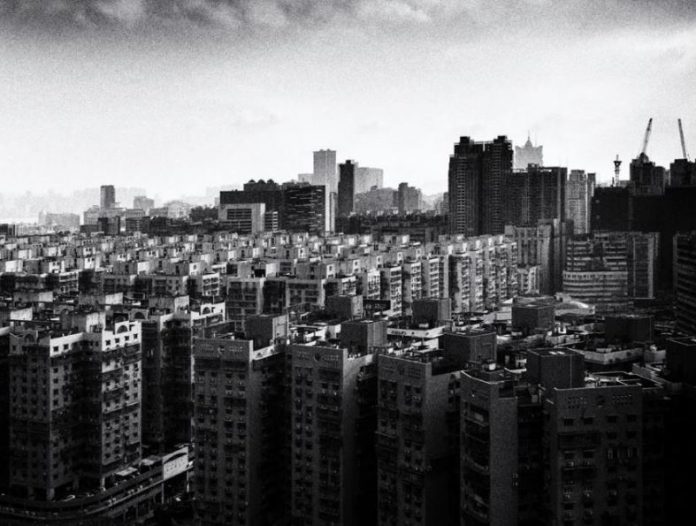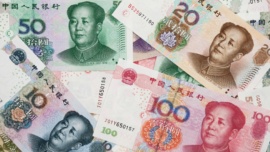Alongside the very rich in Macau, there are the very poor and housing costs are definitely the biggest social problem. “Intervention and long-term planning by the Macau Government is far from being enough”, an expert said.
MB Jan 2020 Special Report | IMF: from glory to recession

According to government figures, only about 2.3 percent of Macau’s population live in poverty. However, charity organization Caritas says it’s about 10 percent, with 4 to 7 percent struggling due to food shortages. So, who’s right?
The official percentage is based on income, and it does not seem to take into account the significant living costs that result directly or indirectly from the boom in the casino industry.
It’s true that, as Professor Penny Wan states, “Macau residents’ acceptance level of the further development in casino gaming is high”, but it’s also important to understand that “local people who work or have businesses in tourism and in related industries are benefiting from the expansion of tourism and feel more positively about local tourism development”. It means that “this group of local residents enjoy direct economic benefits”, the Assistant Professor at the Tourism College of the Institute for Tourism Studies explained.
The general population can directly or indirectly feel the benefits of employment, but do not forget that “the tourism boom has had several negative economic, social and environmental consequences here, just like other tourist destinations with gaming facilities”, adds Penny Wan, to whom “it is definitely important and necessary to reduce those negative effects”.
“From the economic side, the well-known casino-economy domination has caused a huge income difference between different industries. While the average casino worker earns a lot more than others, other industries are now in a more marginal position with an inferior average income”, is the explanation given to Macau Business by Michael Lai, Adjunct Assistant Professor in the Faculty of Social Sciences at the University of Saint Joseph. “Even within the same industry (especially in casinos), the income of cleaners and security guards is always a lot lower compared to that of other professional figures, and this is an important problem that needs to be highlighted”.
Additionally, Professor Lai found another important reason to explain social inequality in Macau: “the intervention and long-term planning by the Macau Government is far from being enough”.
The Assistant Professor in the Faculty of Social Sciences at the University of Saint Joseph understands that “a lot of current policies by the Macau government are more short-term (like the cash sharing scheme) and these can’t solve existing problems such as the skyrocketing housing price, traffic, and other issues related to the daily life of citizens”.
“Also, – says Michael Lai – the minimum wage and the Minimum Subsistence Index can no longer cope with the current expenditures in Macau, for example housing and daily necessities”.
From this point on, says the scholar of the University of Saint Joseph, “these are resulting in two main kinds of problems”. On the one hand, “the income inequalities exist because of the huge income gap between the rich and the poor”. On the other hand, “the poor living standard of people in this city is also representing such inequalities, with a possible lack of social mobility”.
“It seems that the casino industry is the one that mostly benefited from this, but citizens can’t enjoy the benefit of economic growth and are still suffering from a lot of issues”, Professor Lai claimed.
“Housing cost is definitely the biggest social problem in Macau. This is the most serious social problem that the government needs to cope with it“ – Michael Lai

Penny Wan, though, has a different perspective on this topic: “I do believe that there are still many negative aspects that need to be addressed, but the general feeling of the local residents (as I perceive) is that they witness the government is doing something (incrementally) to reduce the problems they’re faced with”.
“Nevertheless, local people hope the government can do more… i.e giving more chances for hotel and casino workers to move up the ladder, providing more affordable housing, improving public transportation, giving more chances for people to have a real public participation in the tourism planning process, and taking care of the elderly and of people with disabilities”, the Assistant Professor at the Tourism College of the Institute for Tourism Studies added.
“I do believe that there are still many negative aspects that need to be addressed, but the general feeling of the local residents (as I perceive) is that they witness the government is doing something (incrementally) to reduce the problems they’re faced with” – Penny Wan
“Housing costs are definitely the biggest social problem in Macau”, stated Michael Lai, pointing that “a small sub-divided flat also costs a great portion of the minimum subsistence index. Also, citizens all agree that they can hardly afford buying a flat in Macau”. That’s why this Macau-based scholar insists: “this is the most serious social problem that the government needs to cope with”.
Paul Pun, Secretary General of the local Caritas, also puts housing in the first place: “the number of high-income households has grown at a quicker pace than low-income households”. One of the main consequences is that “the cost of living, i.e. the amount of income spent on rent or housing mortgage increased compared to the rate of increase of family income”. Interviewed by Macau Business, Mr Pun also underlined “the rate of increase in Consumer Price Index, especially in relation to basic food and households necessities”.

“Cool down public discontent”
“The political turmoil in Hong Kong will cool down public discontent a little, as people may become weary of the consequences of their discontent”, said a former Professor at the University of Macau, Newman Lam, adding: “Furthermore, Macau has a new chief executive and people may give him the benefit of the doubt (a kind of “wait and see”).
Interviewed by Macau Business from Canada, where he now lives, Newman Lam went on to say: “I hope the situation in Hong Kong makes the central government realize what the previous model of government of Hong Kong and Macau was like; in my opinion it was a scheme that benefited the rich to rule the general public as many people in the two cities had a mentality of following, if not worshiping, the rich and powerful”.
If so, the former Associate Professor, Department of Government and Public Administration, believes that “the central government may instruct the new Macau chief executive to pay more attention to remedying the income gap (keeping Macau as the poster boy for the “One Country, Two Systems” principle) while tightening political control. There have been some ridiculous suggestions mainly put forward by mainland-born academics that Macau would replace Hong Kong as China’s gateway to the western world. Such suggestions are essentially unrealistic, since Macau doesn’t even have an airport that can accommodate large airplanes and handle heavy international flight traffic and, most important of all, the MOP isn’t internationally circulated, not to mention Macau’s deficiencies in comparison to Hong Kong in banking, insurance, commercial laws and business institutions”.
























